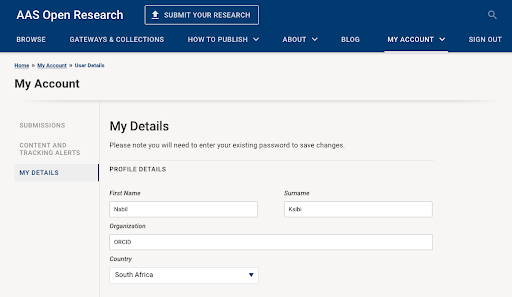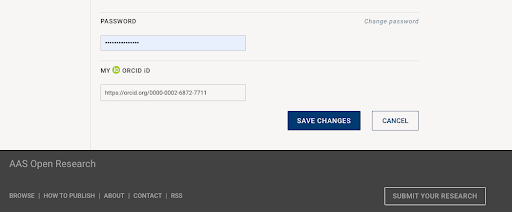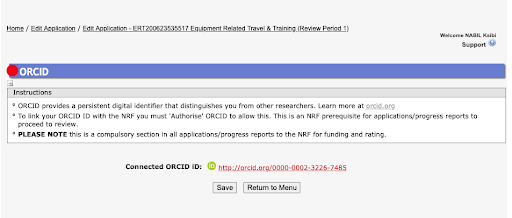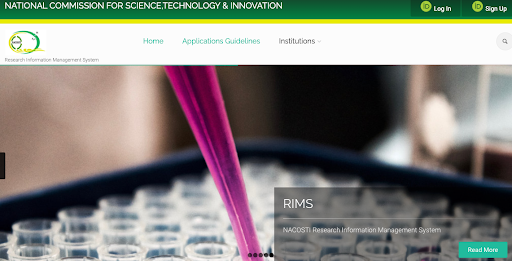[avatar user=”Nabil Ksibi” size=”thumbnail” align=”left” /]
Best Practice and a Shared Vision
In an effort to spread ORCID best practice use and to support academic systems interoperability in Africa during the last couple of years, we managed to participate in the growth of the open research community and to build relationships with institutions in order to share the ORCID vision on the continent.
ORCID outreach activities during the last two years focused primarily on workshops in different parts of the region with participation in regional gatherings such as the SPARC Africa Symposium, eResearch (both in Cape Town), and eko-konnect 2020 (Lagos). Our involvement in these workshops demonstrates the support and interest the open research community in the region is showing in regards to persistent identifiers as well as research contribution discoverability when using ORCID iDs.
ORCID on African Research Infrastructure
We are noticing a diverse adoption of ORCID in Africa from African journals working on ORCID integration with Open Journal Systems (PKP), such as the Botswana Journal of Agriculture and Applied Science. We can also see research institutions integrating with a variety of systems (e.g., DSpace, Converis, Elements, Costum, etc.) as per the work done by the TENET South Africa Consortium assisting member universities in developing more than one integration per institution.
The work continues with the ongoing integration that CBN Nigeria is developing by planning a Bepress integration.
The SA ORCID Consortium membership has seen a steady increase and currently consists of seventeen members. Members have been taking advantage of vendor-based systems such as Converis, OJS, InfoED, and DSpace, however, there has been an increase in custom build integration for University staff profile websites.
As the consortium lead for the SA ORCID Consortium, TENET has also been involved in a range of ORCID-related activities, from participating in Consortium lead meetings to contributing to ORCID Working Groups. They have also participated in university library conferences which has helped build stronger relationships with the university library community of South Africa, particularly because libraries are commonly the home of ORCID activities in South Africa.
Realizing that TENET could add extra value to the consortium, they have also joined as a member and are busy investigating the option of a central hub to allow an easier way for universities to collect ORCID iDs, as well as contribute trusted affiliated ORCID information back into the researcher ecosystem.
Funders in the region are adopting ORCID more frequently and showing interest in including ORCID identifiers in their workflow. Examples include ORCID members, African Academy of Science, NRF South Africa, and NACOSTI in Kenya.
The African Academy of Sciences (AAS) Open Research provides researchers supported by AAS and programs supported through its funding platform, AESA, with a place to rapidly publish any results they think are worth sharing. All articles benefit from immediate publication, transparent refereeing, and the inclusion of all source data. The ORCID integration with the AAS allows researchers to connect their iDs and add works to their records.


Image 1: The African Academy of Science allows their researchers to connect their iDs and add works to their records.
NRF (South Africa) collects, displays, and imports information from authenticated ORCID iDs to their grant application system.

Image 2: NRF South Africa collecting, displaying, and importing information from ORCID.
At NACOSTI, ORCID is integrated in the RIMS Research Information Management System that was developed by the Kenyan government to expedite permit application process for researchers, at the same time improving the efficiency and transparency of the entire permit application process. NACOSTI is collecting ORCID iDs of users and linking them to the user’s permit profile.

Image 3: NACOSTI RIMS Portal
Collaboration in the region
It is undeniable that many of the efforts in place are thanks to our partner members and partner organizations. Partners like KnowledgeE in the United Arab Emirates are including and sharing ORCID best practice use in their publishing workflow and in their activities in general. Also, the work done by AfricArXiv and TCC Africa in promoting the best practice use of ORCID helps us increase regional awareness. (For more details, see the AfricArXiv-ORCID collaboration blog post.).
In West and Central Africa, we participated in different LIBSENSE workshops, starting with the ORCID introductory webinar in March 2019. Then in 2020, we also participated in this year’s LIBSENSE workshop with a session on persistent identifiers.
We also joined EIFL and CARLIGH for a webinar describing ORCID benefits for the research and for the librarian.
In an effort to strengthen inter-continental engagement toward our community, we participated in APAN20, held by Asia-Pacific Advanced Network, which is a not-for-profit association of Asia-Pacific national research and education networks (NRENs) incorporated in Hong Kong. Here we described how the South Africa Consortium grew through the years and how TENET made it easier for ORCID members and non-members to adopt the best practice use of ORCID.
Our Israeli consortium, led by the Inter University Computation Center, continues developing their national CRIS infrastructure, and in September, the Open University of Israel joined as a consortium member. We recently hosted a webinar on ORCID integrations in HR systems, showcasing the implementation use cases of our Israeli consortium (led by the Inter University Computation Center). You can read more on the Israeli consortium history and progress on The Israeli Consortium One Year On post.
We are also planning our second webinar for the Arabic speaking community in the region, where we will convey news for and from the community.
We recently partnered with ITOCA to provide communication and outreach to the regional community.